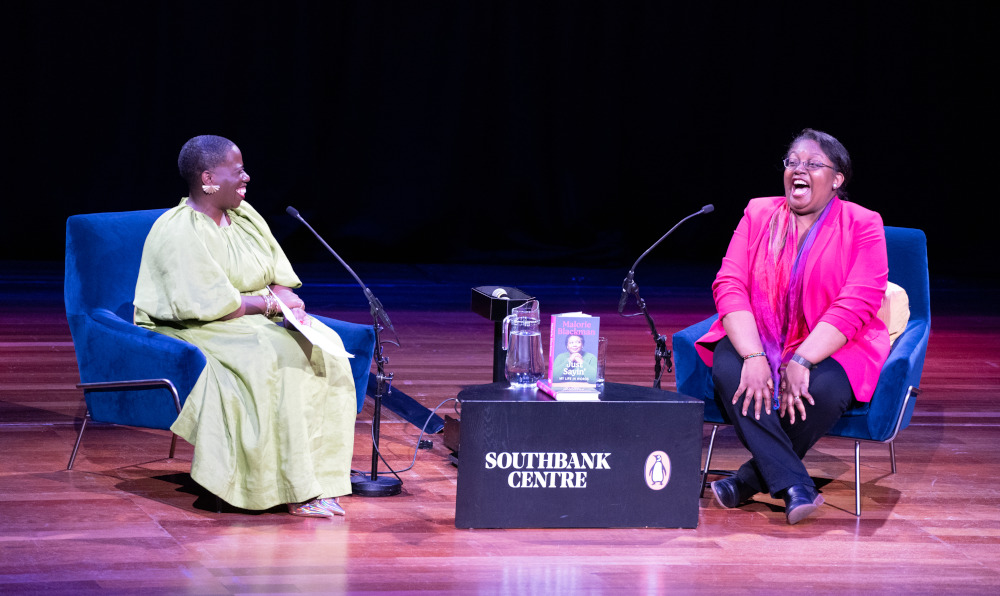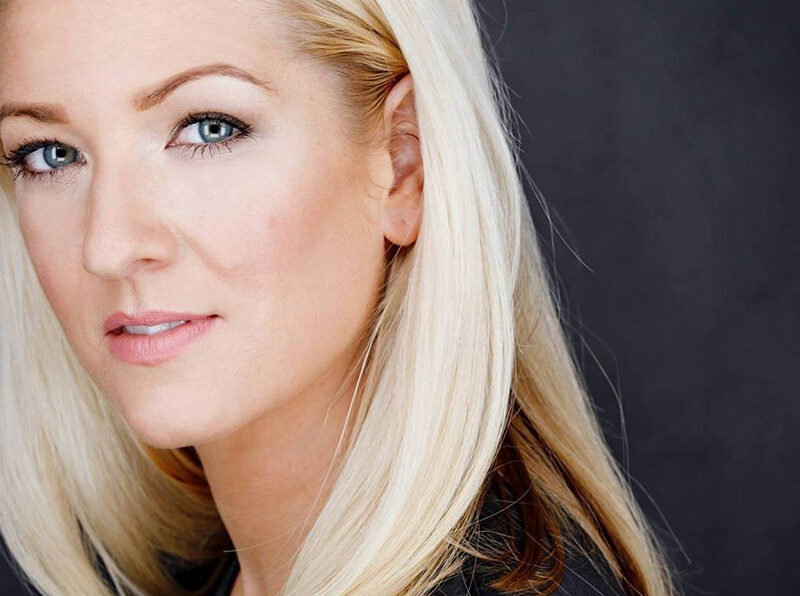
Malorie Blackman – Just Sayin’
Malorie Blackman – Just Sayin’
As part of London Literature Festival, Malorie Blackman speaks at a live event at the Southbank Centre to promote her autobiography Just Sayin’, discussing her inspiring journey from rejection to adoration. By Adam Davidson
“It’s a shame about this one, she’s going to be dead before she’s thirty.” It was the pain and devastation of being told she was going to die young from sickle cell disease that was the driving force behind Malorie Blackman’s writing career.
Having turned 60 this year, Blackman is now one of the most successful and prolific British authors in recent history and her books have inspired a generation of writers and readers.
After 70 pieces of fiction, the author is finally releasing her first work of nonfiction, her long-awaited autobiography Just Sayin’, an ode to the younger Malorie and all the disconnected dreamers like her. She says: “I spent so long, especially as a child and a teen, being told that either I had no voice or nobody wanted to hear my voice that by the time I hit my twenties and I was writing I thought, ‘No’. That’s why it is called Just Sayin’ because I’m going to speak loud and speak my truth.”
From illness to living in a homeless shelter and encountering racism, it was a long and painful journey to success for Blackman. Before the author had published her first book, she had accrued an impressive 82 rejection letters from various publishers for eight or nine of her books but it was the niggling feeling in the back of her head that the doctor who told her that she was going to die could have been right which made her realise she had nothing to lose.
She jokes: “I was going to wait until I get to my 1000th rejection letter and I wouldn’t have even given up then, I would have just had a little sit down and asked if this is working.”
The writer also faced difficulties in getting published as she found that in the early days many editors were ‘gatekeepers for the black experience’ and believed that adventure stories or thrillers were not this experience, but instead ‘tower blocks, racism and trauma’.
She adds: “That’s so boring, it is tedious. It is a black experience and you need to widen your gaze.”
At times like these, Malorie said that she bit her lips so hard there would be permanent scars.
Malorie’s big break came from Noughts and Crosses which is a purely fictional story that arose from her real anger from the Stephen Lawrence case and the racism surrounding it. In her story, she flipped the social dynamic so that white people were second-class citizens to ‘play with people’s assumptions.’
Malorie says that this book was the hardest to write because the protagonist of the story, Callum, had the closest personality to her own. “A lot of the things Callum goes through, especially as a teen or at school, were based on true things that happened to me. It made me dredge up stuff that was painful and personal and it made it very painful to write but it was also very cathartic to write. It was very cathartic to get out all that anger he feels.”
Malorie Blackman held the prestigious position of Children’s Laureate from 2013 to 2015 and she has some words of advice for aspiring writers. “Write from the heart as well as the head and don’t be afraid to write about true deep feelings and true emotions[…] Don’t try and copy anyone else’s style, cultivate your own style and your own voice.”
She also has words of warning for the Government as creative subjects are regularly being cut from the curriculum in schools. Malorie says: “Creativity is so important, especially for our children and teens and especially what we have been through with lockdown because they need a constructive way to express themselves for the good of their mental health but the first subjects to get cut are things like music, art, drama and dance.
“All those subjects which allow you to express yourself constructively are the first ones to get chopped and we are setting ourselves up for some serious, serious mental health issues if we don’t get a grip on this and support our young people and look after their mental health.”
Photo: Pete Woodhead






